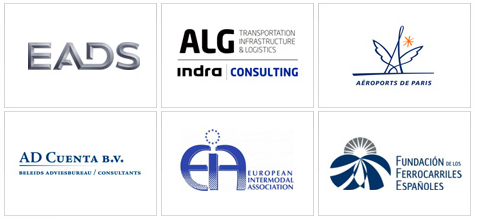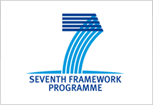Project Description
The ModAir project aims at designing and setting up a mode-overlapping forum, where representatives from the air, rail and urban transport as well as any other relevant actor will contribute to the development and improvement of co-modality and intermodality for passengers in European airports. The interconnectivity at European airports is often still limited to urban transport, with in particular very few high-speed train stations.
Some of the existing intermodal links do not fully meet the passengers’ expectations, leading to low usage. ModAir will build on the projects already funded by the European Commission to give a clear view of the current state of intermodality and co-modality in the European airports, deliver a roadmap for future research and provide the European Union with a structured group of experts able to help choose the best ways of implementing the connectivity of airports with other transport modes. Through cooperation between air and rail stakeholders, as well as intermodality and transport specialists, ModAir will be able to contribute to the preparation of future EU research and technological development policy.
Collaborating Companies or Organisations

Indra's Role
WP3: Co-modal mapping of airports.
The objective of this Workpackage (WP) is to map the current intermodal connections between European airports and other transport modes, especially high speed trains. A workshop will be organized to validate the results and to discuss alternative routes towards intermodality.
ALG/Indra will deal with the mapping of the current state of high speed train links.
WP4: Framework design.
The WP aims at defining the European Forum on Airport Passenger Intermodality (EFAPI). It will identify common and complementary aspects of key stakeholders in order to establish a framework for creating this Inter-platform discussion group for passenger transport. A strong focus will be on the air sector, while rail and urban transport will complement the co-modal chain. A definition of an Inter-platform design structure will be proposed as first task, while a common consensus will be agreed upon in the final project stage, depending on the WP outcomes. A general vision regarding sustainable and seamless door-to- door intermodal passenger travel and information services will be developed. Mechanisms and communication tools will be defined and agreed upon aiming at enabling the EFAPI and its underlying vision to become a reality.
ALG/Indra will be responsible for developing a specific approach (methodology) to improve the performance of airport centred co-modality and intermodality with long distance high speed trains (HST). The proposed methodology will provide guidelines for the proper conception of those intermodal links, including technical and design solutions, integrated information and ticketing, user needs, organisational issues, multi-stakeholder cooperation and financing, institutional structures and mechanisms, promotion and marketing. Business cases will be suggested to better assess risks and benefits in the area of air/HST passenger intermodality.
WP5: Identification of R&D needs.
This work package aims at helping the Commission prepare the future Framework Programme calls by identifying the research, development and innovation needed to better interconnect information exchange systems, to allow single reservation systems and single ticket for multiple modes and to organise the transfer of luggage between modes. The output of the work package will be a list of R&D needs and a roadmap.
ALG/Indra will be responsible for identifying the research, development and innovation needed to allow single reservation and single ticket systems for multiple modes.
More information
This project, under the code FP7-314348, has been partially funded by the European Commission within the 7th Framework Programme (FP7-AAT-2012-RTD-1)

